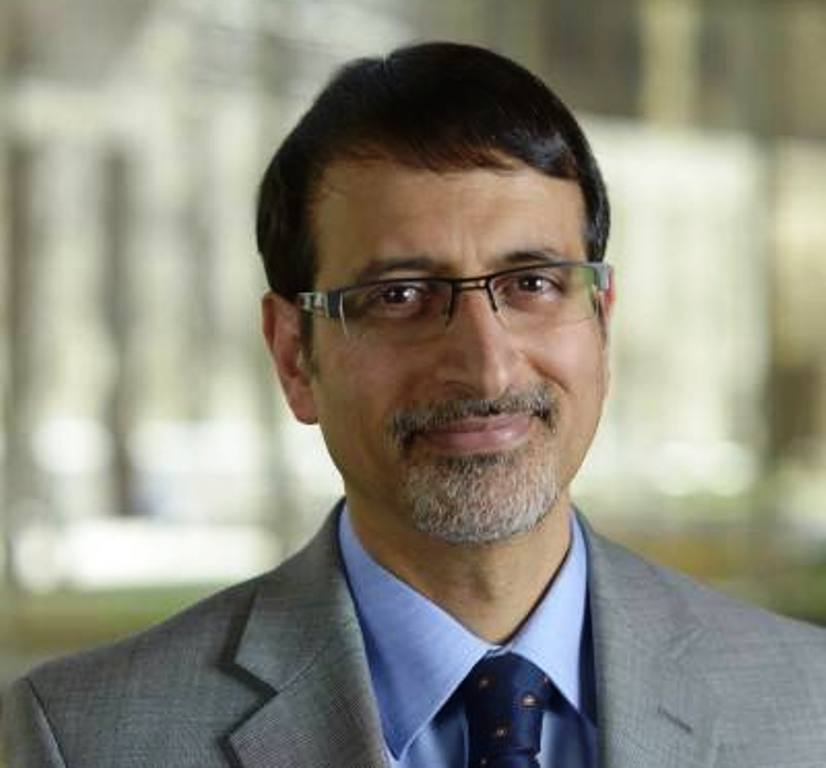by Mariah Shah
SRINAGAR: Top Kashmiri American cardiologist, Dr Iftikhar J Kullo has been nominated to the National Advisory Council on Human Genome Research (NACHGR) that the US National Institutes of Health (NIH) runs. The orders were issued by Xavier Becerra, Joe Biden’s Secretary of Health and Human Services (DHHS).

Dr Iftikhar will be part of the council till September 30, 2024, reports appearing in the media said.
The NACHGR advises the US Department of Health and Human Services (DHHS), the National Institutes of Health (NIH), and the National Human Genome Research Institute (NHGRI), on genetics, genomic research, and training and programs related to the human genome initiative. Besides, the NACHGR performs second-level peer review for grant applications and determines the programme priorities for NHGRI and the goals for the government’s efforts in the International Human Genome Project (HGP).
Honored to serve on National Advisory Council for Human Genome Research along with distinguished colleagues @howardychang @OlgaTroyanskaya @kylebrothers @genegj @ssr4n Hal Dietz, Laura Beirut, Lynne Jorde, Len Pennachio, Mark Craven, Lisa Parker, Peter Robinson, @NHGRI_Director https://t.co/8gFwnYBJKs
— Iftikhar J. Kullo (@iftikhar_kullo) April 19, 2022
Dr Iftikhar Kullo serves as a Professor of Medicine and Science, and a Consultant in the Department of Cardiovascular Medicine and the Gonda Vascular Center at Mayo Clinic College of Medicine, Rochester, Minnesota. He is the head of the Atherosclerosis and Lipid economics Laboratory and a chairperson of the Cardiovascular Genomics Task Force.
Through his Atherosclerosis and Lipid Genomics Laboratory, Dr Kullo is investigating the use of new methodologies in refining cardiovascular risk stratification. These include genetic markers, circulating biomarkers, and noninvasive tests of arterial function and structure.
His focus area, according to the Mayo College website, includes the genetics of arterial plaques in which Dr Kullo’s lab uses family history studies, linkage studies, candidate gene association studies, genome-wide association studies and genome sequencing to study the genetic basis of atherosclerosis. Besides, his laboratory conducts clinical trials in genomic medicine, such as the recently concluded Myocardial Infarction Genes (MI-GENES) study, which assessed the effect on LDL cholesterol of disclosing a genetic risk score for coronary heart disease based on 28 susceptibility variants. Another project is investigating the clinical utility of a genetic risk score composed of susceptibility variants for abdominal aortic aneurysms.
Dr Kullo has incessantly been funded by the NIH (National Institutes of Health) since 2003. He is a Principal Investigator in the NHGRI’s eMERGE and PRIMED consortia.
Dr Kullo has done his MBBS in the Government Medical College, Srinagar in 1987. Formerly, he has been a Resident of Internal Medicine, Postgraduate Institute of Medical Education and Research, and Chief Resident at Institute of Medical Sciences, Srinagar. He did his internship in Internal Medicine at Nassau County Medical Center, State University of New York. Subsequently, Dr Kullo remained as a Resident in Internal Medicine at Mayo School of Graduate Medical Education. He, later, joined as Clinician-Investigator Program and fellow at Mayo School of Graduate Medical Education, Mayo Clinic College of Medicine.
“I am honoured to serve on the National Advisory Council on Human Genome Research. Genomics is transforming biomedical research and I’m excited to have the opportunity to advise on the discovery and implementation aspects of genomic medicine to improve outcomes for our patients,” Dr Kullo has said after his appointment to the National Advisory Council on Human Genome Research.
The major focus of his research is the genetic basis of Coronary Heart Disease, the implementation of Genomic Medicine, and the biomarkers of cardiovascular risk. Dr Kullo investigates the use of new methodologies in refining cardiovascular risk stratification. Utilizing his Atherosclerosis and Lipid Genomics Laboratory, Dr Kullo investigates the use of new methodologies in refining cardiovascular risk stratification. These include genetic markers, circulating biomarkers, and noninvasive tests of arterial function and structure. Dr Kullo’s laboratory emphasizes the improvement of the facility to predict adverse cardiovascular events in asymptomatic individuals using genetic susceptibility markers, circulating biomarkers, and measurements of arterial function.
In his laboratory, he intensively studies the Genetics of arterial plaques (atherosclerosis), Familial hypercholesterolemia (FH), and Implements genomic medicine in the EHR, Genomic discovery using EHRs, Proteomic markers for vascular disease, Arterial stiffness, and ventricular arterial interactions, Peripheral arterial disease (PAD), and Vascular diseases biorepository.















